|
William R. Huckle, Editor
|
Abstract deadline now Aug 17
Vascular Biology 2020
An exciting virtual event
October 26-29, 2020
|

Boston, MA
Postponed until Summer 2021
|
Vascular Biology Publications Alert Now Available by Subscription
The NAVBO Vascular Biology Publications Alert will now be available to non-members for a $55 a year subscription. If you would like to receive this alert, but are not a member, please contact Danielle at membership@navbo.org.
|
Shop at Amazon?
Help Support NAVBO
|
|
Partner Network Advantage on the NAVBO Job Board
|
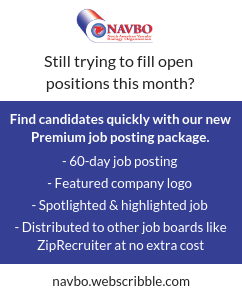
Why post your job on NAVBO's career center rather than going directly to the larger job networks?
Pricing on the mass job boards can vary, but to get a job noticed you typically have to sponsor it for $5 - $10 per day, which can add up quickly especially since you also pay for each click the job gets. When you add it all together, you could be spending up to $45 per day on your job posting. But, when posting a job on NAVBO's career center, you simply pay a flat fee! The Premium package includes our Exclusive Extended Partner Network - which means the jobs are broadcast to sites like ZipRecruiter and Jobs2Careers and more for a flat fee.
With special member pricing, you can post a job for as low as $300 with this Partner Network. You never pay for each click, just the flat fee on the NAVBO career center. In addition, the Premium package includes a 60-day job posting making it a great value. The Premium packages also offer features like having your company's logo featured on the career center homepage, having your job appear first in search results, and more.
|
Your data privacy and security are important to NAVBO. To that end, we have updated our privacy policy to reflect recent privacy and security regulation implementations and changes. Please review our policy as time permits so you have a complete understanding of the data we have, why we have it, and how we use it.
Part of the updates relate directly to the European Union's new General Data Protection Regulation (GDPR) that went into place May 25,2018. The GDPR seeks to improve the transparency of data usage and give end users more control over their own data. We believe these changes are important and will be compliant with the GDPR regulations.
Contact NAVBO if you have any questions or to change your communication preferences.
Please note, you can unsubscribe to this newsletter at anytime by clicking on the SafeUnsubscribe in the footer.
|
|
 |
|
 |
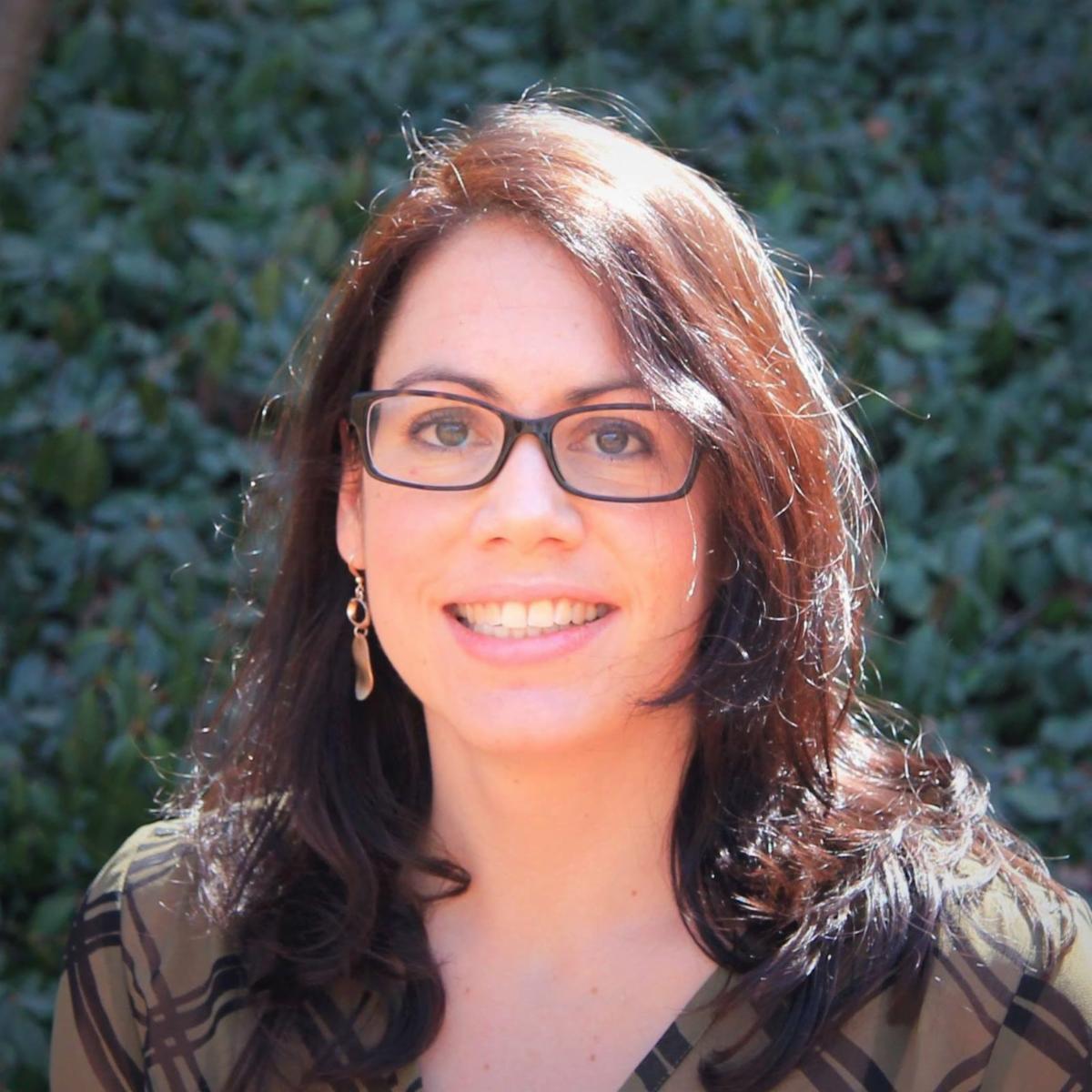
Delphine Gomez, Ph.D.
Dr. Delphine Gomez is an Assistant Professor of Medicine at the University of Pittsburgh. She is a core faculty member of the Vascular Medicine Institute (VMI). She was born and raised in Paris, France, where she obtained a MS and a Ph.D. in Vascular Cell Biology and Physiology under the supervision of Dr. Jean-Baptiste Michel at the University Paris VII. She joined Dr. Gary K. Owens laboratory at the University of Virginia in 2010 for her postdoctoral training and worked on vascular smooth muscle cell contribution and phenotypic transitions in atherosclerosis. Dr. Gomez started her independent lab in 2017 at the University of Pittsburgh. Her laboratory studies the contribution of vascular smooth muscle cell in various cardiovascular diseases including atherosclerosis, peripheral artery disease and aortic aneurysm. Ongoing projects focus on the identification and characterization of epigenetic mechanisms controlling smooth muscle cell differentiation, lineage identity, and plasticity during development and vascular disease.
Dr. Gomez, who is a NAVBO member since 2015, is excited to be a NAVBO Council member this year and promote NAVBO core mission of promotion of vascular biology and vascular development research.
|
|
NAVBO Meritorious Awards - Deadlines Approaching
|
|
Submit Nominations:
For the Earl P. Benditt Award and the Judah Folkman Award
Junior Faculty - submit your abstract and application for the
Springer Junior Investigator Award. Deadline is August 17. Apply here.
|
Special Webinar!
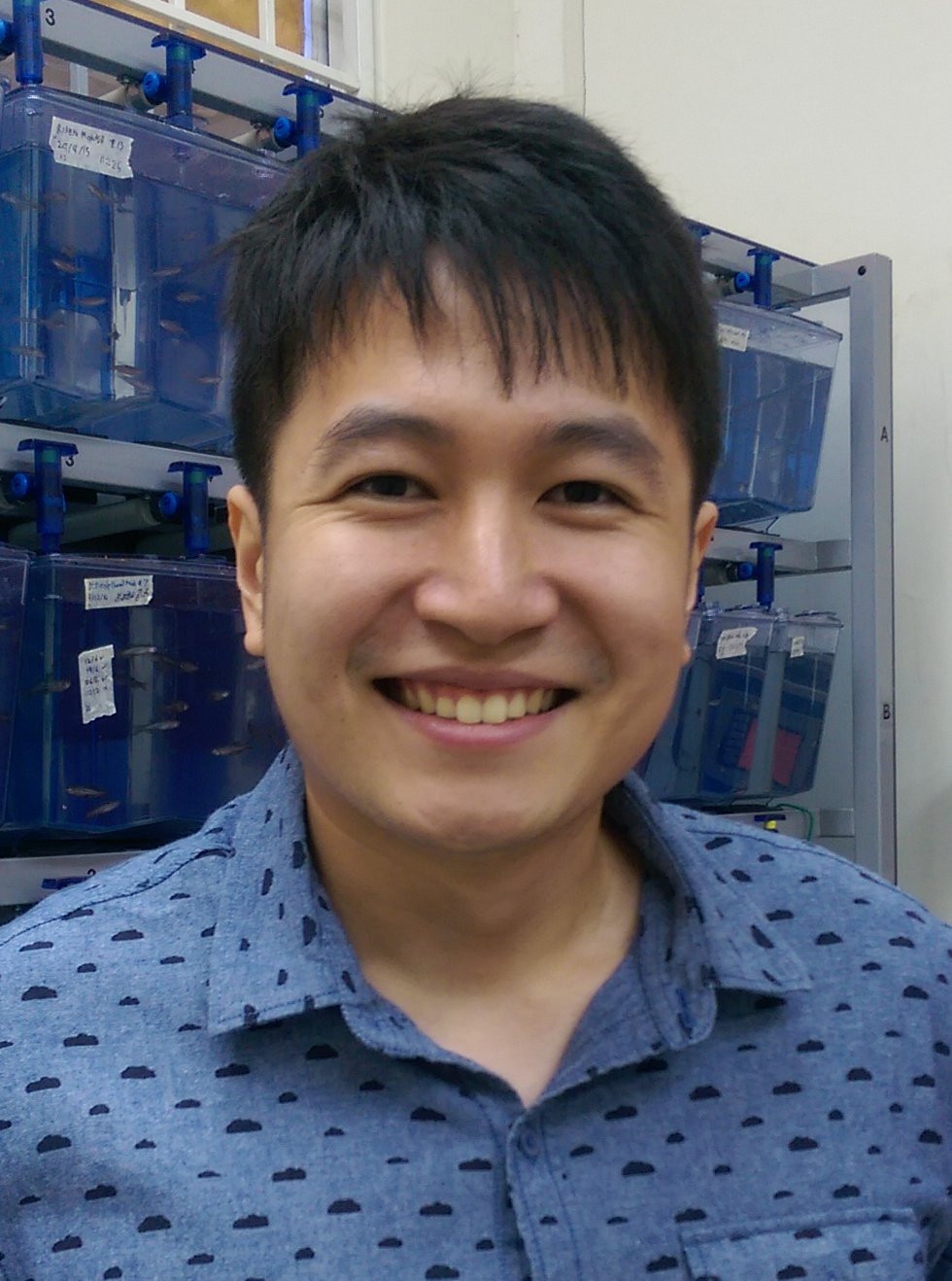 Our August 13 webinar on Lymphatic Development, will be very special indeed! Organized by NAVBO Member, Kazuhide Okuda of the Peter MacCallum Cancer Centre, this session will feature the following presentations: Our August 13 webinar on Lymphatic Development, will be very special indeed! Organized by NAVBO Member, Kazuhide Okuda of the Peter MacCallum Cancer Centre, this session will feature the following presentations:Determining the genetic and
developmental basis of human lymphatic vascular disease
Natasha Harvey,
University of South Australia
The origin and assembly of the zebrafish facial lymphatics
Jonathan Astin, University of Auckland
 Mysteries of meningeal lymphatic vessels Mysteries of meningeal lymphatic vessels
Jihoon Ahn, KAIST
The session will be held on Thursday evening at 8:30pmEDT so that our colleagues in Asia and Australia can tune in live! Click here for more information and to register.
|
Special One Time Offer
Not a NAVBO member, but are considering joining and would like to see this webinar? Contact membership@navbo.org for information on membership, our meetings and a link to this webinar.
NAVBO welcomes members from all over the world, you need not be in North America to join. |
Tweet this! Join the NAVBO webinar on Lymphatic Development.
Join us!! NAVBO Webinars are free to current NAVBO Members. Non-members can attend for $25 per webinar. Hint: Join NAVBO!
And don't forget you can watch recorded webinars as well - go to
|
Plan to Attend Vascular Biology
|
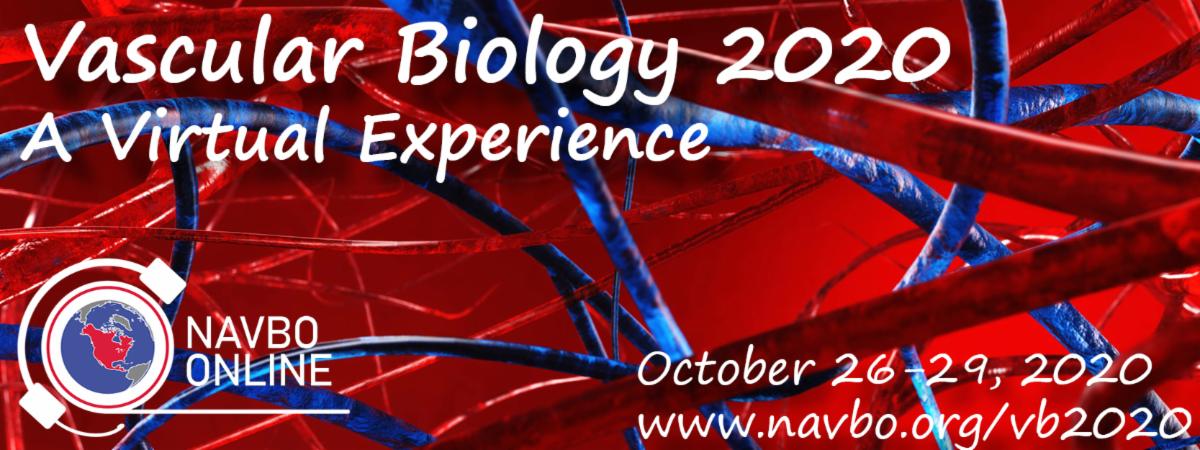
Very excited to be joined by: The Microcirculatory Society and the
American Society for Investigative Pathology
We're looking for volunteers! When you register indicate that you would like to judge posters and/or moderate a Round Table or Poster Discussion. Also, tell us what topics you want to discuss in our Round Tables.

Tweet this! Register for Vascular Biology 2020 |
|
Looking for a New Position?
|
Emerging Scientists Series - Add Your Profile!! 
Take advantage of this opportunity to showcase your work for would-be employers. Join Cody on our web site!
We have heard from a number of people that both graduation ceremonies and thesis presentations have been cancelled and/or reformatted for remote participation. Coupled with the temporary halt in in-person conferences, this situation may be making it more challenging for trainees to network, promote their science, and search for their next position. To address this, NAVBO will offer online opportunities for our trainee members.
The new Emerging Scientists Series will offer trainees the opportunity to showcase their thesis research in short research highlight talks. This new resource will serve as a place for trainees to share their work with employers that are hiring and searching for a new recruit with vascular biology research experience. Postdocs - looking for your first faculty position? You can use this service as well.
If you are a trainee that has just defended your thesis, or a postdoc seeking your first faculty position and are interested in this opportunity, please contact membership@navbo.org
|
Leaders' Lessons is on summer hiatus and will return in the fall, featuring wisdom and advice from senior NAVBO members on topics like "How to choose what to pursue scientifically," "Does a research career give second chances?", "How to reinvigorate your research," "What is the right balance between technical personnel and trainees?" and "How to succeed as a physician-scientist."
In the coming months, we want to address YOUR questions - please send your suggestions to Anita.
Senior NAVBO members - we need your help! Please consider investing a few minutes to give back on a grand scale by sharing the lessons you've learned throughout your career with our entire community and in particular, the next generation of vascular biology researchers. Simply respond to one or more of the questions above and send your response to anita@navbo.org. If you are interested in regularly contributing to Leaders' Lessons, please let Anita know (anita@navbo.org).
|
As fall semester looms, institutions prepare a positive path
Everyone whose lives intersect with life sciences education - students, faculty, staff, family, and more - are eager for a return to familiar patterns of learning, teaching, working, and being. Toward this end, institutions of higher ed have worked hard over the summer to devise plans for opening fall 2020 studies in a manner that is safe, productive, and inspire the confidence and compliance of all involved. Particulars of these plans differ according to institutional culture and prevailing local public health considerations, but they each make an earnest appeal to the team spirit of their diverse communities, with reminders of mutual responsibilities to colleagues as well as oneself. The only win is one that we all share.
|
Welcome to our New Members:
Selen Catania, NIH
Giulia De Rossi, University College London
Luke Dunaway, University of Alabama at Birmingham
Jesus M. Gomez Salinero, Weill Cornell Medicine
Shashi Kant, Brigham Women's Hospital
Marvin Klapman, Kaiser-Permanente
Jamie Meegan, Vanderbilt University Medical Center
Ana Mompeon Campos, Northwestern University
Mitchell Murdock, MIT
Young Oh, NHLBI/NIH
Eric Patterson, Lawson Health Research Institute
Bronek Pytowski, Eli Lilly
Ilsa Rovira, NHLBI-NIH
Joseph Rutkowski, Texas A&M University College of Medicine
Jocelynda Salvador, University of Missouri-Columbia School of Medicine
Yujia Yue, Merck
Jun Zhang, Texas Tech University Health Sciences Center El Paso
|
| Recent Publications by NAVBO Members |
Robust differentiation of human pluripotent stem cells into endothelial cells via temporal modulation of ETV2 with modified mRNA
Science Advances
Human induced pluripotent stem cell (h-iPSC)-derived endothelial cells (h-iECs) have become a valuable tool in regenerative medicine. However, current differentiation protocols remain inefficient and lack reliability. Read more
|
Evidence for endothelial-to-mesenchymal transition in human brain arteriovenous malformations
Clinical and Translational Medicine
Background: Brain arteriovenous malformations (AVMs) are rare, potentially devastating cerebrovascular lesions that can occur in both children and adults. AVMs are largely sporadic and the basic disease biology remains unclear, limiting advances in both detection and treatment. Read more
|
The Lymphatic Vasculature in the 21st Century: Novel Functional Roles in Homeostasis and Disease
Cell
Mammals have two specialized vascular circulatory systems: the blood vasculature and the lymphatic vasculature. The lymphatic vasculature is a unidirectional conduit that returns filtered interstitial arterial fluid and tissue metabolites to the blood circulation. Read more
|
NIH stresses flexibility in awardees meeting compliance requirements
A recent 'Open Mike' feature on the NIH's Extramural Nexus describes administrative flexibilities that NIH, mindful of COVID-related challenges, is extending to research institutions with active laboratory animal programs. These accommodations aim to maintain expected personnel safety and animal welfare while allowing investigators to sustain their research efforts. For example, the Office of Laboratory Animal Welfare has granted temporary waivers to semiannual inspections. Other flexibilities, such as the ability of IACUCs to conduct business virtually, are always available to institutions but may be particularly useful during pandemics. Many unanswered questions remain; investigators are encouraged to reach out to OLAW with queries on related topics.
COVID-19 casts shadow on seeking care for myocardial infarction
Salvatore De Rosa and colleagues report in the European Heart Journal on the impact of the COVID-19 pandemic on patient admissions to Italian cardiac care units for diagnosis of suspected acute myocardial infarction. The study, a multicenter, observational survey, collected data on admissions for AMI at Italian cardiac care units in a 1-week period during the COVID-19 outbreak compared with the equivalent week in 2019. Admissions for AMI were reduced by 48.4%, with significant drops for both ST-segment elevation MI and non-STEMI. The STEMI case fatality rate during the pandemic test window was markedly increased compared with 2019 (risk ratio 3.3). The authors note that their findings reflect a serious social issue that warrants attention by the healthcare and public regulatory communities.
AAMC plans November e-conference on medical education and health care delivery
The American Association of Medical Colleges has announced plans for Learn Serve Lead 2020, the organization's signature event focused on academic medicine's present and future. The agenda will examine how COVID-19 has changed the medical school experience and the operation of teaching hospitals, against the backdrop of persistent racial inequities both in society and within health care. Confirmed speakers include Ibram X. Kendi, PhD, Nikole Hannah-Jones, Francis Collins, MD, PhD, Anne Schuchat, MD, and Anthony Fauci, MD. The virtual gathering is scheduled for Nov. 16-18, 2020; registration opens in August.
|
|
Frontiers in Cardiovascular Medicine
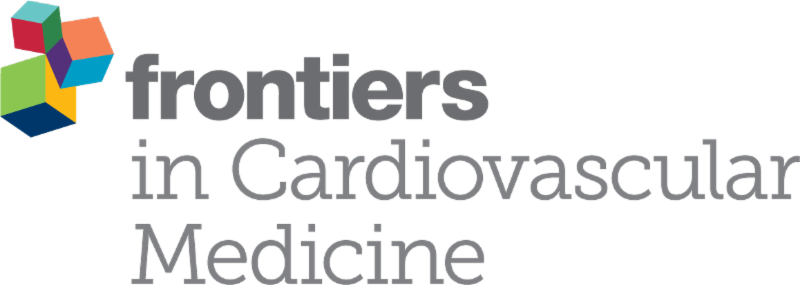 Special Research Topics Special Research Topics
Putting Engineering Back In Vascular Tissue Engineering To Advance Basic Science and Clinical Applications
Topic Editors: Jessica Wagenseil (Washington University in St. Louis) and W. Lee Murfee (University of Florida).
This topic is sponsored by NAVBO
Vascular tissue engineering (VTE) can be characterized as the creation of replacement vessels. Over the past 30 years, approaches have incorporated different combinations of extracellular matrix scaffolds, cells and biological active chemical cues. Challenged by the goal to recapitulate the complexity of big or small vessels, the clinical use of in vitro tissue engineered vessel replacements is still limited. With research more often focusing on reductionist materials science or cell biology characterization of vessel-like constructs, an opportunity has emerged to re-apply engineering approaches to guide the next step in VTE.
Submit your manuscript by October 17, 2020
What do we know about COVID-19 implications for cardiovascular disease?
The coronavirus epidemic causes major cardiovascular complications. Underlying mechanisms, however, remain incompletely understood. Frontiers in Cardiovascular Medicine invite you to submit your article on this topic. We consider all types of manuscripts: fundamental basic science reports, translational or clinical studies, review articles and methodology papers.
Submit your manuscript by August 28, 2020
Comorbidities and aortic valve stenosis - molecular mechanism, risk factors and novel therapeutic options
Topic Editors: Claudia Goettsch, Felix Jansen and Cynthia St. Hilaire Aortic valve stenosis (AS) is the most prevalent valvular heart disease of the elderly population in the developed world, and the disease burden is estimated to increase from 2.5 million in 2000 to 4.5 million in 2030. Comorbidities like hypertension, type 2 diabetes mellitus, dyslipidemia, chronic kidney disease, COPD, chronic inflammatory diseases, and anemia are highly prevalent in this population. They not only influence the clinical course of AS and its prognosis, but affect therapeutic success. Submit your abstract by September 15, 2020 For more information, click here |
Dear friends and colleagues,
This special issue aims to provide readers with an up-to-date advancement in lesser-known genes, proteins and signaling pathways in vascular biology. Manuscripts related to concepts from these genes and proteins and their associated signaling pathways that connect into the well-established vascular ligand-receptor signaling systems are welcome. For more details about this special issue and the "Author Instructions", please visit the website at https://vpjournal.net/journal/special_detail/478. Are you interested in contributing an article before December 31, 2020? If yes, please contact Ramani Ramchandran (rramchan@mcw.edu), the Guest Editor for this special issue, or Mavis Wei (mavis@vpjournal.net), the Managing Editor of VP. If you need additional information, please feel free to contact us. VP is an online open access journal which was launched on March 31, 2017 by OAE Publishing Inc. It waives the Article Processing Charge (APC) for all publications since launched. Thus, your manuscripts will be published totally free of charge once officially accepted after quick and rigorous peer-review. Meanwhile, all manuscripts published in VP will be immediately available online for free downloading and reading. Further, if the work is funded by NIH, we can deposit it in PubMed on your behalf. Thank you for considering this invitation.
|
|
|